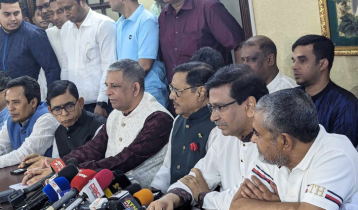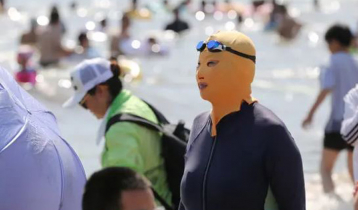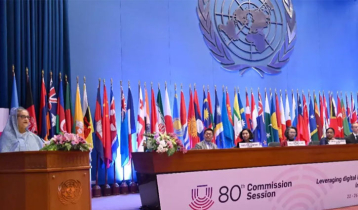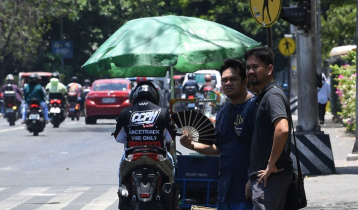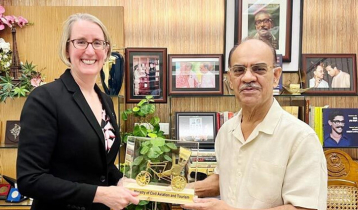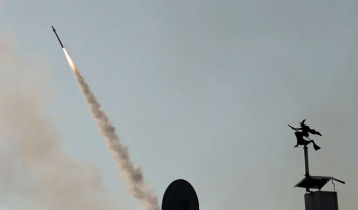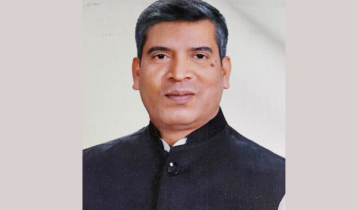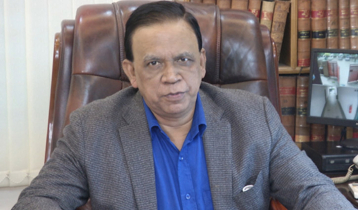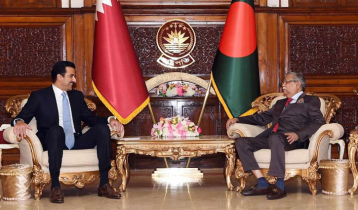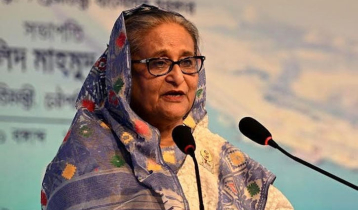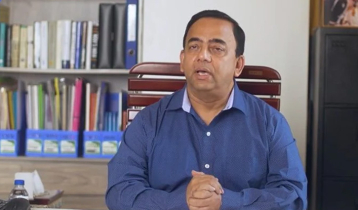Japanese Muslim blazes own trail
|| risingbd.com
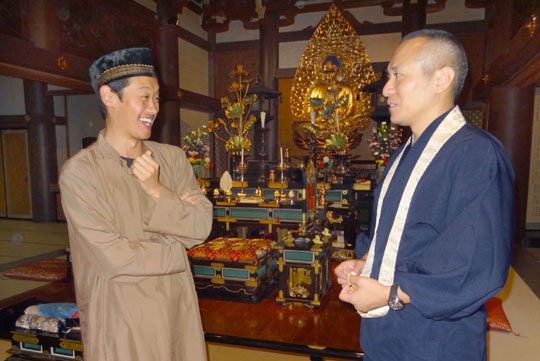
The faithful: Masashi Nagano (left), a 28-year-old Japanese Muslim, speaks with a Buddhist monk after attending a prayer meeting of believers from various religions at Enyuji, a temple in Meguro Ward, Tokyo, on Oct. 21. KYODO
By TAKESHI NISHIDE
Kyodo
Masashi Nagano is an unlikely believer in Islam. He is a 28-year-old Japanese, born and brought up in a society with predominantly Shinto and Buddhist undertones, who hated religion as a child.
Nagano became a Muslim in 2008, when he was in graduate school.
"That was nothing but a divine revelation," he says.
During childhood he developed an aversion to religion. He was appalled by the atrocities perpetrated by Aum Shinrikyo, including the 1995 poison gas attack on the Tokyo subway system that killed a dozen people and sickened thousands of commuters.
But Nagano became interested in Islam when he read the Quran as part of his anthropology studies, and he started to mingle with Muslims living in Japan.
He is now a devout believer.
"I owe what I am to the Quran," he says.
Although an estimated 10,000 or more Japanese Muslims live in Japan, most are women who converted after marrying Muslims.
Despite his unusual status as a Japanese who embraced Islam for a purely religious motive, Nagano appears to be relaxed about his religion.
He says he is fond of the Islamic attitude of fatalism as expressed in "inshallah," an Arabic interjection meaning "God willing."
This fall, Nagano participated in a training program for believers from various religions who want to help heal mental wounds, rather than promoting their religion.
The program was launched under Tohoku University`s initiative to remedy the deep scars left on people who lost family members and homes due to the Great East Japan Earthquake`s monstrous tsunami in March 2011.
Nagano finished the training course in November.
"I feel it`s difficult to live as a Muslim in Japan, but I`m willing to go wherever I`m needed."
He says his activity as a religious mental care expert is part of a quest to find out what Muslims can do in Japanese society. Nagano, who lives in Tokyo, has been scraping by doing computer programming jobs.
He learned much from "Dialogue Among Civilizations," a book written by former Iranian President Mohammad Khatami, who is known as a moderate.
He frequently visits Buddhist temples to foster a cooperative relationship between Islam and Buddhism, among other religions. "I want to develop good chemistry with my dialogue partners while bettering each other," he says.
Another Japanese Muslim is Mimasaka Higuchi, 76, a former chairman of the Japan Muslim Association.
He became a Muslim in 1963, but not because of a divine revelation or other spiritual inspiration.
After graduating from university, he studied Arabic as a means to pursue an international career. He got a chance to study in Egypt on a scholarship program sponsored by the Egyptian government. Becoming a Muslim was a prerequisite.
Higuchi took the plunge and seized the opportunity, but at first he was a Muslim in name only.
"At that time, Islam was regarded as a barbarian religion of the desert. Until I left for Egypt, I lived as a closet Muslim," he says.
After studying at Al-Azhar University in Cairo for three years, Higuchi was employed by a Japanese airline and lived in the Middle East for more than 10 years.
Although he first threw himself into the Muslim world for opportunistic reasons, his belief in Islam gradually grew.
Higuchi observed that the strong bond of people within tribal societies of the Arab world is similar to the workplace solidarity seen among Japanese.
However, ordinary workers in Japan would find it difficult to follow Islam`s strict practices.
Even so, Higuchi says, it is possible to live as a Muslim in Japan by adopting a laid-back approach to the rigors of religious practices.
For example, if the time for prayer has come while commuting on a train, making a mental gesture of prayer would be enough, with the actual practice put off until an appropriate occasion later, he says.
Should it become necessary to wine and dine an important business client during Ramadan, the Islamic month of fasting, the schedule for the eating ban can be tweaked.
The way to go is not choosing "religion or work" but pursuing "religion and work," Higuchi says.
"Islam is a religion of forgiveness, so the important thing is to make atonement and take a balanced approach."
-The Japan Times
risingbd.com

